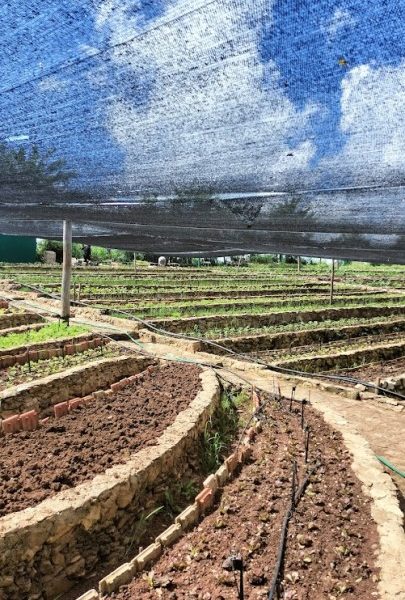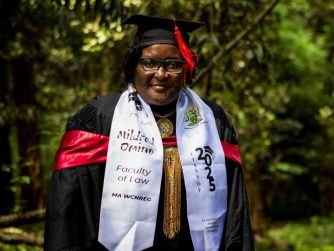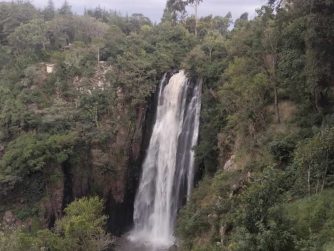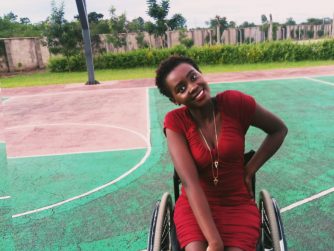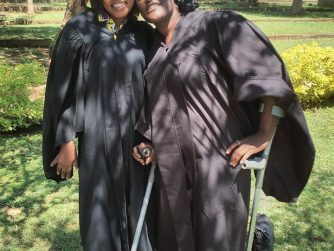A year ago, we engaged in an exercise that left me more curios than I could imagine!
We had just began preparing an alternative report on the status of Women and girls with disabilities in Kenya for submission to the Committee on Economic, Social and Cultural Rights (CESCR). Climate change was among the issues that we were paying attention to in the context of women with disabilities. Others included health, education, employment, housing and social protection. As members volunteered to be in various thematic groups, I challenged myself and joined the Climate change thematic group.
This was a revealing moment for me. It was distressing to hear experiences of women with disabilities with regards to the devastating impacts of climate change on various aspects of their lives. It is the narrations by disabled women documented below that made me think that the climate justice has taken the shape of a single story which is dangerous as Chimamanda Ngozi puts it!
“I had a few cows and goats, it has been three years since we received good rains. We are experiencing the worst drought ever. I lost all my cows due to the long period of drought. Other people tried to keep their cattle alive by buying them maize. I couldn’t do so because I can barely afford for myself and family consumption. I was lucky though my goat survived till the rains came. The rains which was to be the blessing came with a lot of force and swept all my goats down the river. I had received this livestock from the well-wishers.”
“I did not have an opportunity to get education. I have been depending on family. My family had some camels, goats and cows. We started losing the cows first then the goats. Early this year, we started losing some of our camels. They say the camels are the most resilient animals. Then you know how serious the situation is. I feel like a burden because I can’t help my family in anyway.”
“I have never seen a drought like this. We could not find water to drink. I remember one day I drunk dirty water because I was so thirsty. I almost died from stomach disease. Taking shower became a luxury for me. People would go so far to look for water but my disability could not allow me to go that far.”
These are just a few stories from pastoralists women with disabilities, majority of such deserving voices are unheard in the ongoing climate crisis. Our experience in putting together a report to the CESCR committee revealed huge gaps in research, interventions that targeted women with disabilities with little or no documented experiences as well as best practices in mitigating this global crisis.
Coincidentally, Kenya hosted the first ever Africa Climate Summit in Nairobi in September, 2023 which gave so much hope in contextualizing the experiences of Africans on climate change and developing Afrocentric solutions to the crisis. As to whether this hope shall be actualized remains a debate! Participation of Persons with disabilities was dismal in the entire process including; registration process which used captcha as a means of verification, this was a technical knock out to blind people. The accreditation process was marred by long queues in a physically inaccessible venue. While participation of Persons with disabilities in climate action is extremely low, they are among the most vulnerable populations to the adverse impacts of climate change.
Since October this year, I have had the privilege to learn more about Women, Children and Nature Rights in Environmental Governance (WCNREG). Thanks for the generosity of Norwegian Agency for International Development (NORAD) for awarding scholarships to myself and colleagues from Kenya, Malawi and Zimbabwe. This multidisciplinary master’s program seeks to decolonize, engender and green environmental governance with respect to women, children and nature’s rights.
It is quite interesting to learn about the huge investment in hundreds of treaties that seek to address environmental governance across various regions of the world, including Africa. Sadly, the robust legal and policy framework seems to inadequately provide solution to the planet crisis. For Women with disabilities, a lot more needs to be done to ensure that there is sufficient awareness among them to effectively participate in environmental governance and that the existing policy and legal frameworks offer solutions that speak to the specific challenges that they experience with regards to the climate crisis which are aggravated by the multiple intersections of gender, disability among other intersecting identities.

